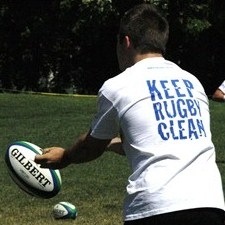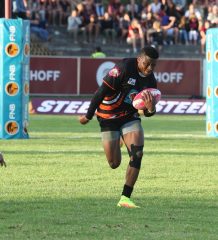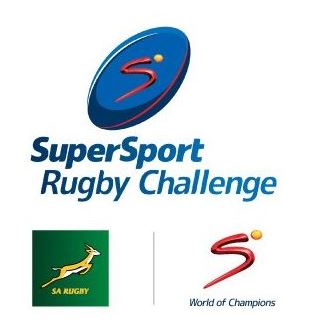IRB anti-doping decision
The International Rugby Board has confirmed that Namibia players Malcolm Moore and Carel Swanpoel have been suspended for six months for anti-doping offences.
Moore (21) and Swanepoel (25) underwent an in-competition urine test on 15 June 2013 following a match against Tunisia in Dakar, Senegal, at the Africa Cup Division 1B tournament. Their samples both contained methylhexaneamine (MHA), which is listed in category S6 (stimulants) of the World Anti-Doping Agency’s (WADA) 2013 list of prohibited substances.
At an IRB Judicial Committee hearing held on 14 October, the players accepted that they had committed anti-doping rule violations.
In considering all aspects of the case, the committee decided to impose six-month suspensions in accordance with the IRB regulations and the WADA Code. Given the players had been provisionally suspended since 19 July 2013, the suspension will run until midnight on 18 January 2014.
An IRB spokesman said: “The IRB operates a zero-tolerance policy on doping. Players are solely responsible for any prohibited substance found in their body. This decision sends a clear message to all players on the risks of taking a banned substance.”
“The IRB has in place a comprehensive education programme which continues to evolve on keeprugbyclean.com. The latest e-learning programme highlights the dangers and consequences of doping.”
The case again highlights the inherent dangers of supplement use and that players need to exercise extreme caution regarding the use of any dietary supplement. No guarantee can be given that any particular supplement, including vitamins, minerals, ergogenic aids or herbal remedies are totally free from prohibited substances.
The IRB has undertaken more than 1,700 in and out-of-competition controls across tournaments and events in 2013, including the HSBC Sevens World Series, Rugby World Cup 2015 qualifiers, Rugby World Cup Sevens 2013, men’s and women’s Tests and age-grade Rugby.
In that time, there were three anti-doping cases, equating to less than 0.18 per cent of the IRB’s entire programme. The IRB remains committed to blood testing across its portfolio of events as well as out of competition and has conducted approximately 600 tests since debuting at Rugby World Cup 2007 in France.
The IRB also focuses on increased educational programmes, including the delivery of Keep Rugby Clean awareness campaigns at IRB age-grade and Sevens events to more than 1,000 players during the year to date.
Courtesy of IRB
Related Posts
« Springboks to face Proteas in T20 match IRB names match officials for Six Nations »




















